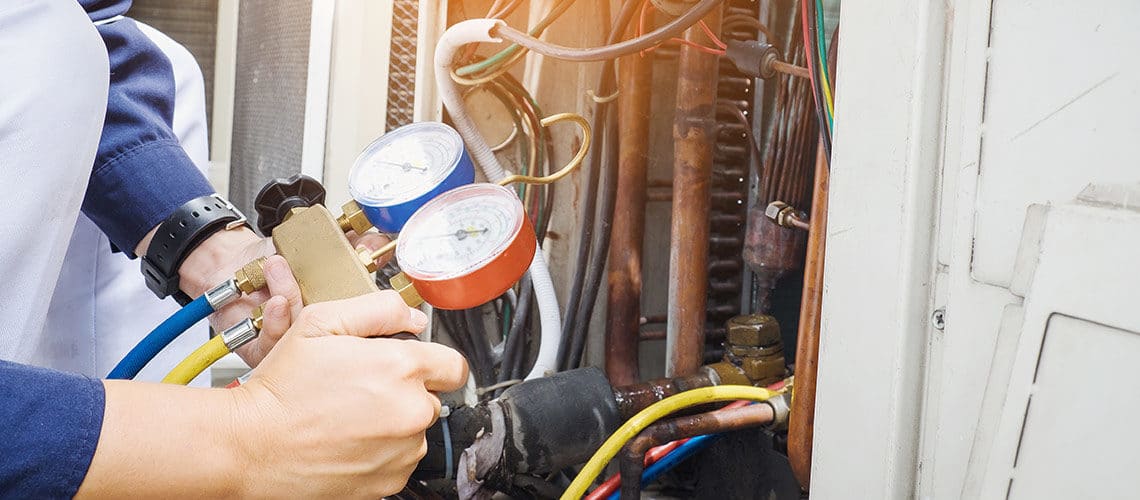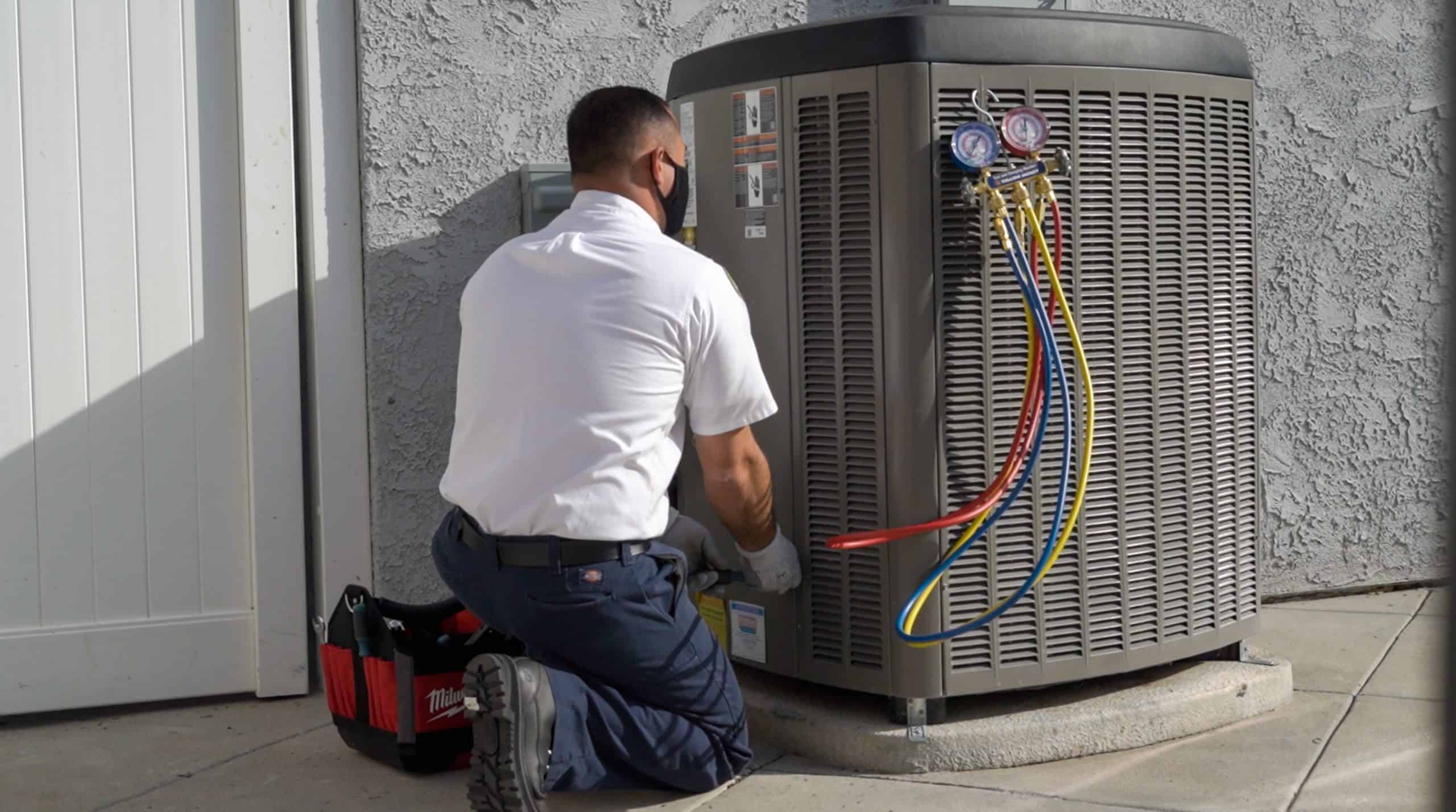Affordable Maintenance Plans with DMAKS HVAC for Your HVAC System.
Affordable Maintenance Plans with DMAKS HVAC for Your HVAC System.
Blog Article
Just How to Pick the Right Cooling And Heating System for Your Requirements
Choosing the proper cooling and heating system is an essential choice that requires mindful consideration of numerous elements. Begin by reviewing your home's size, layout, and one-of-a-kind needs, as these aspects determine the necessary ability and setup of the system. Additionally, developing a spending plan that includes installation and long-lasting functional prices is crucial. As you evaluate your options, recognizing energy performance scores and the implications of your neighborhood climate will certainly play a considerable duty in your option. The myriad of system types readily available can complicate this procedure, leading one to wonder which course ultimately leads to optimum comfort and performance.
Assess Your Home Size
Analyzing your home size is a vital initial step in selecting the suitable cooling and heating system. The dimension of your home directly influences the heating and cooling capability needed for reliable climate control. A cooling and heating system that is too small will battle to keep comfortable temperatures, resulting in boosted power usage and use on the system. Conversely, a large system can lead to short cycling, insufficient humidity control, and inefficient procedure.
To precisely evaluate your home size, gauge the square video of each area, thinking about elements such as ceiling height and the layout. In addition, take into consideration the insulation high quality and the number of home windows, as these elements affect thermal efficiency. Houses with open floor plans might need different system arrangements contrasted to those with several split spaces.
Making Use Of the Handbook J load calculation approach can offer a much more specific estimate of your HVAC requires. This method accounts for numerous aspects, including neighborhood climate, solar gain, and occupancy patterns. By very carefully assessing these aspects, you can make certain that your selected HVAC system is suitably sized, resulting in boosted comfort, power effectiveness, and longevity of the tools.
Determine Your Budget Plan
Establishing your budget plan is a crucial action in the cooling and heating system choice procedure, as it establishes the parameters for your choices - DMAKS HVAC. A HVAC system is a considerable financial investment, and understanding your monetary restrictions will assist limit choices that fit within your methods
Begin by assessing not only the first acquisition price however also setup expenses, which can differ considerably relying on the intricacy of the project. Furthermore, take into consideration recurring expenses such as maintenance, repairs, and power usage. A system might show up economical at first however can bring about higher expenses gradually if it is much less effective.
It is advisable to assign a backup fund for unexpected expenses that might emerge during installation or preliminary system modifications (DMAKS HVAC). Furthermore, explore financing choices or rebates that may be offered, as these can alleviate the worry of ahead of time expenses
Inevitably, having a clear budget permits you to engage with heating and cooling experts a lot more effectively, ensuring you obtain tailored recommendations that lines up with your economic objectives and home requirements. By being diligent regarding your budget, you can make enlightened decisions that enhance convenience without jeopardizing financial stability.
Evaluate Power Performance
Power performance plays an important duty in the total performance and cost-effectiveness of your Heating and cooling system. Look for systems with a high Seasonal Power Performance Proportion (SEER) for cooling down and a high Yearly Gas Use view it now Performance (AFUE) ranking for home heating.
Additionally, take into consideration the Power Celebrity qualification, which represents that the system meets strict effectiveness standards established by the Epa. Purchasing an Energy Star-rated cooling and heating system can bring about significant financial savings over time, particularly in areas with extreme temperature level variations.
An additional variable to review is the system's size and capacity. An oversized or small device can bring about inadequacy and raised power expenses. DMAKS HVAC. Appropriate sizing, commonly figured out with a Hands-on J load calculation, makes certain that the system runs at ideal performance

Think About Climate and Setting
When picking an a/c system, it is crucial to consider the regional climate and environmental conditions, as these aspects substantially affect the system's efficiency and efficiency. Different areas experience differing temperature level extremes, moisture degrees, and seasonal adjustments, every one of which influence heating and cooling down demands.

In addition, local ecological factors, such as air high quality and possible allergens, must inform your option. Equipments geared up with innovative filtration innovations can aid alleviate toxins and offer cleaner air. In addition, consider the power sources offered in your location-- some heating and cooling systems are a lot more reliable when powered by natural gas or sustainable power resources.
Eventually, aligning your HVAC system choice with your neighborhood environment and environmental considerations will cause boosted comfort, enhanced performance, and reduced power prices.
Explore System Kind and Features
As property owners seek to enhance convenience and performance, discovering the numerous kinds of HVAC systems and their unique features becomes important. The main types of a/c systems include air conditioning, heat pumps, ductless mini-split systems, and furnaces. Each system provides distinct advantages tailored to various demands and preferences.
Central air systems offer uniform cooling from this source throughout a home, making them ideal for larger rooms. Heatpump function as both heating and cooling down remedies, making use of power to move warm, important source which can result in lower power expenses. Ductless mini-split systems are ending up being increasingly prominent because of their flexibility and ease of installment, enabling property owners to control the temperature level in private rooms without extensive ductwork.

Conclusion
Finally, choosing the proper a/c system necessitates mindful consideration of various elements, consisting of home size, budget plan restrictions, energy effectiveness, regional environment, and offered system kinds. A detailed analysis of these components makes certain ideal comfort and cost-effectiveness. By complying with a structured method, property owners can make informed decisions that straighten with their specific demands and choices, eventually causing improved indoor air quality and energy financial savings.
Report this page